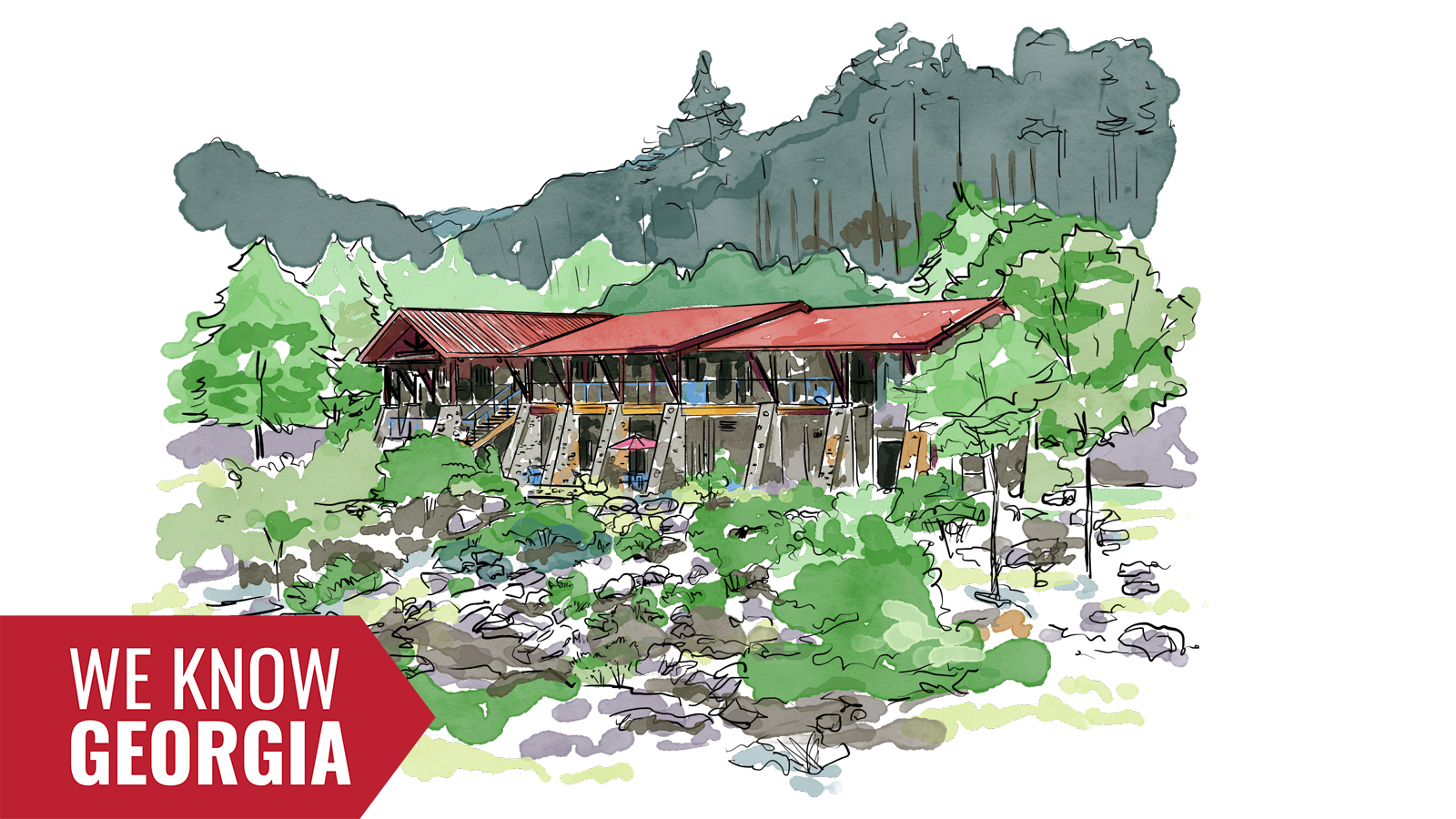When fire destroyed the iconic Ocoee Whitewater Center in April 2022, it also took a piece of the community’s soul. Built for the 1996 Summer Olympics, the site was a popular hub for recreation and special events for residents and visitors to the mountains shared by Georgia, Tennessee and North Carolina.
Now, community engagement experts at the University of Georgia Carl Vinson Institute of Government have helped to create a vision for the site based on insight and recommendations from people concerned with its revival.
“The facility was fantastic for the Olympics, but maybe it wasn’t practical for the community afterward. There’s so much potential for the site to become a central gathering point, to rebuild it and make it even better,” said Lynne McClary, director of Polk County (Tennessee) Chamber of Commerce.
To determine the site’s future, the UGA Institute of Government partnered with the U.S. Forest Service to understand the significance of the Ocoee Whitewater Center to those most affected by the tragedy.
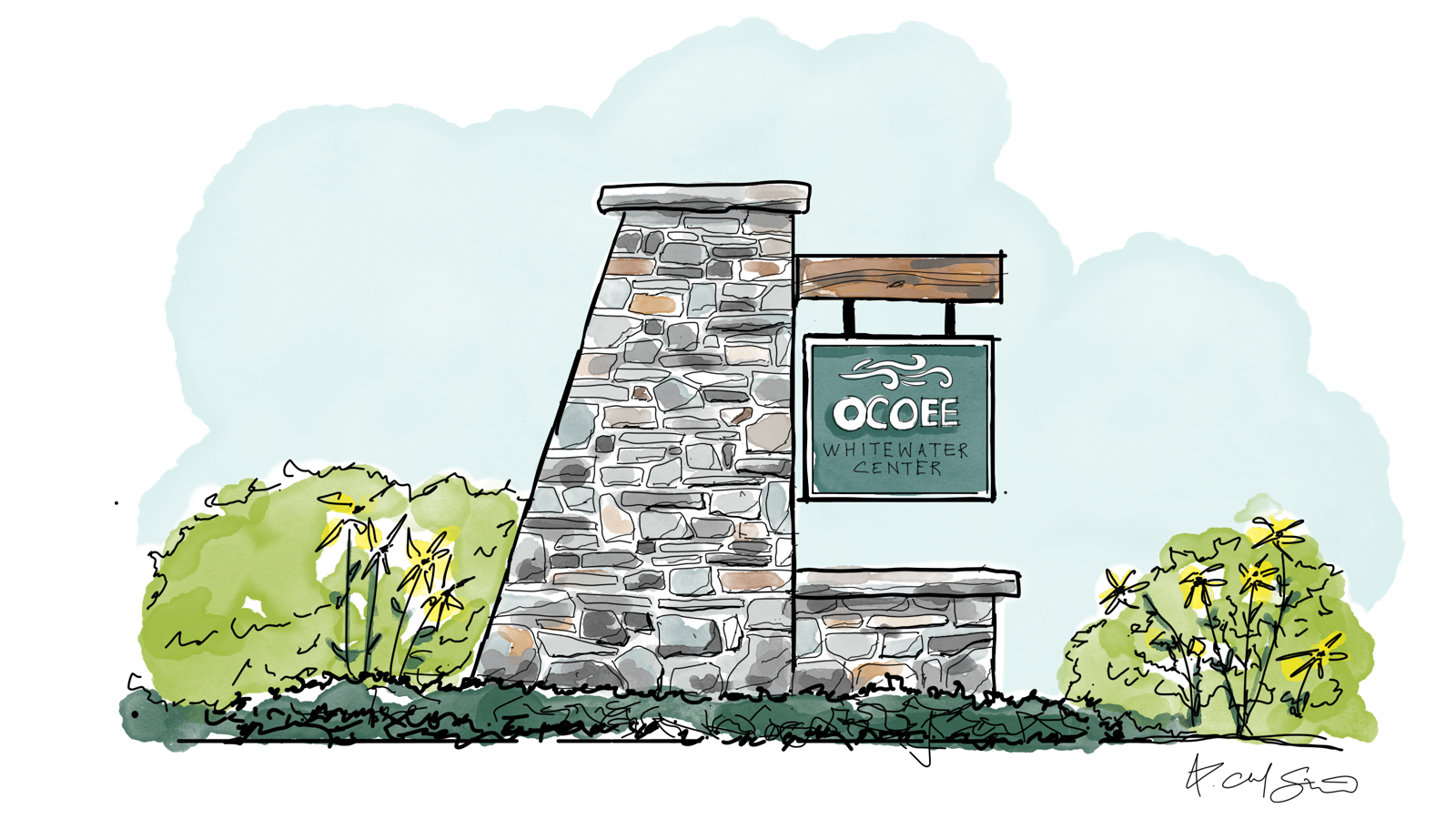
Watercolor sketches by team members Clark Stancil and Kaitlin Messich bring the ideas to life.
Led by faculty member Leigh Elkins, the Institute of Government team spent several months conducting surveys and focus groups on visitor use and demand, receiving over 7,000 comments from 38 states and three countries.
Elkins found that people were eager to share their stories.
“I feel like our process was a form of therapy for community members,” she said. “Whether swimming in the Blue Hole as a child, volunteering for the Olympics, or being a current rafting guide, very few people we met didn’t have a personal connection to the place.”
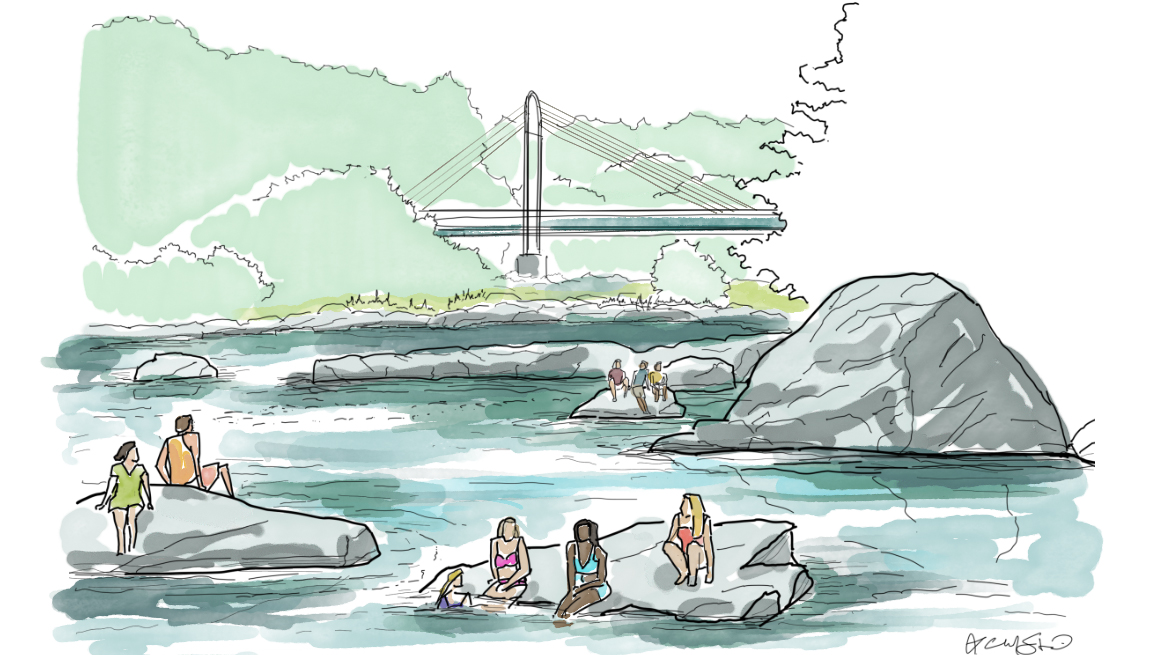
Watercolor sketches by team members Clark Stancil and Kaitlin Messich bring the ideas to life.
Those sentiments are captured in “Reimagining the Ocoee Whitewater Center,” a report that serves as a blueprint for the Forest Service and other partners responsible for redesigning and rebuilding the site. The UGA team culled and organized the information into four areas of consideration: amenities, programmatic elements, physical experience and operational recommendations. Watercolor sketches by team members Clark Stancil and Kaitlin Messich bring the ideas to life.
Consulting with people who know and love a place provides a foundation for designers, Elkins said. “You have to build it for the people already there, not just those you want to come.”
The report incorporates history and native flora and plants vital to placemaking, a hallmark of the UGA Institute of Government’s community planning and resilience services. The concept emphasizes the themes that define a place and support its ongoing evolution.
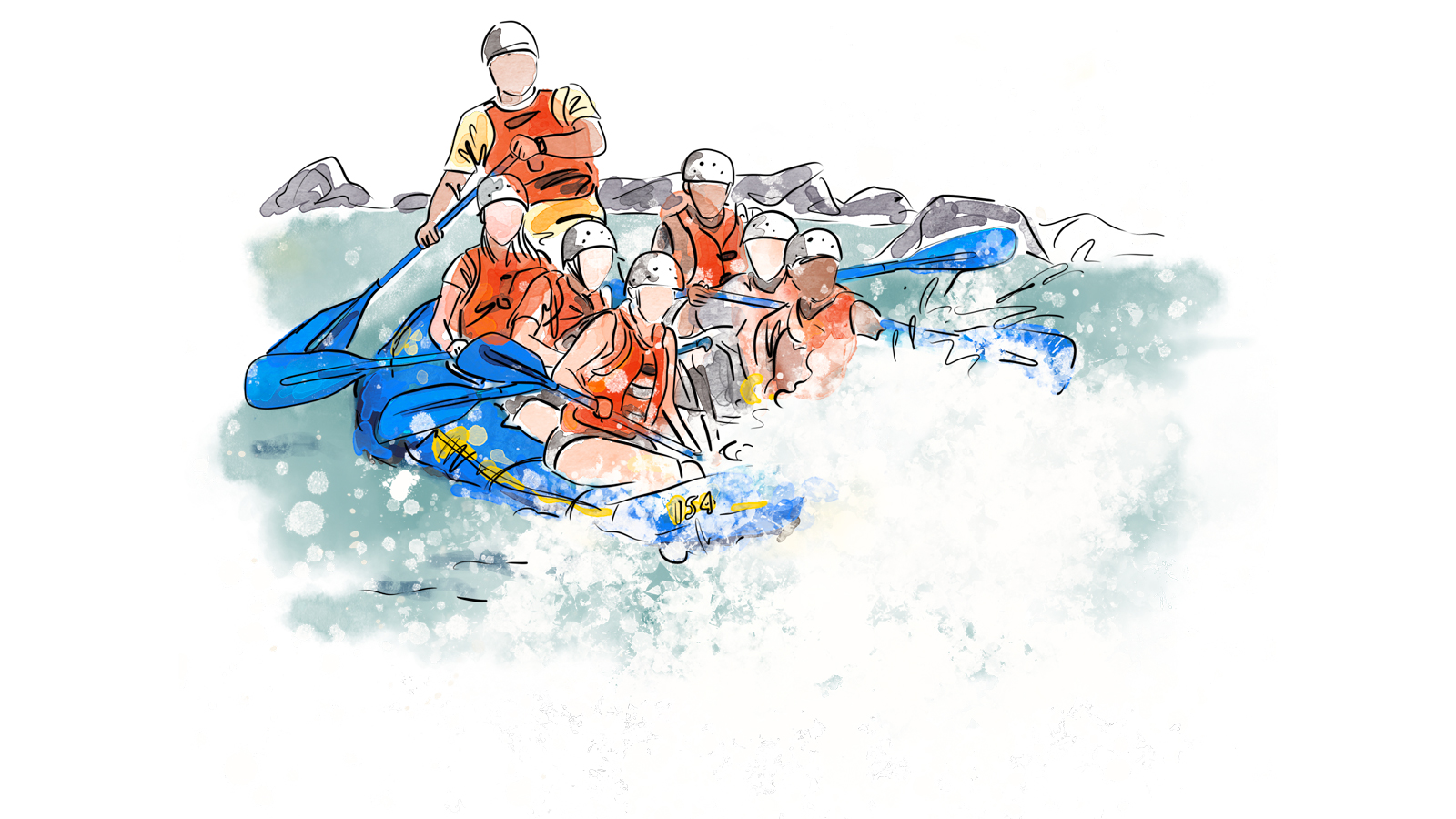
Watercolor sketches by team members Clark Stancil and Kaitlin Messich bring the ideas to life.
McClary said working with the UGA Institute of Government and other partners on the process “opened her eyes” to the value of thoughtful engagement and unbiased professional help with successful community development.
“I can’t develop plans, but I can connect the dots. There’s something to be said for putting the people with expertise together to benefit everybody,” she said.
The next step includes landscape architects, architects, engineers and economists collaborating with the Forest Service and federal, state and local partners to create formal plans for reimagining the site based on the UGA report.
“People from all over told us how important it was to get this right, and we are working to understand that input,” said Michael Wright, forest supervisor of the Cherokee National Forest.
“This catastrophic event that destroyed the visitor center gives us an opportunity to create a next chapter that better meets the needs of visitors to the entire site.”
For more about Community Planning and Resilience, visit https://www.cviog.uga.edu/services/community-planning-resilience/index.html
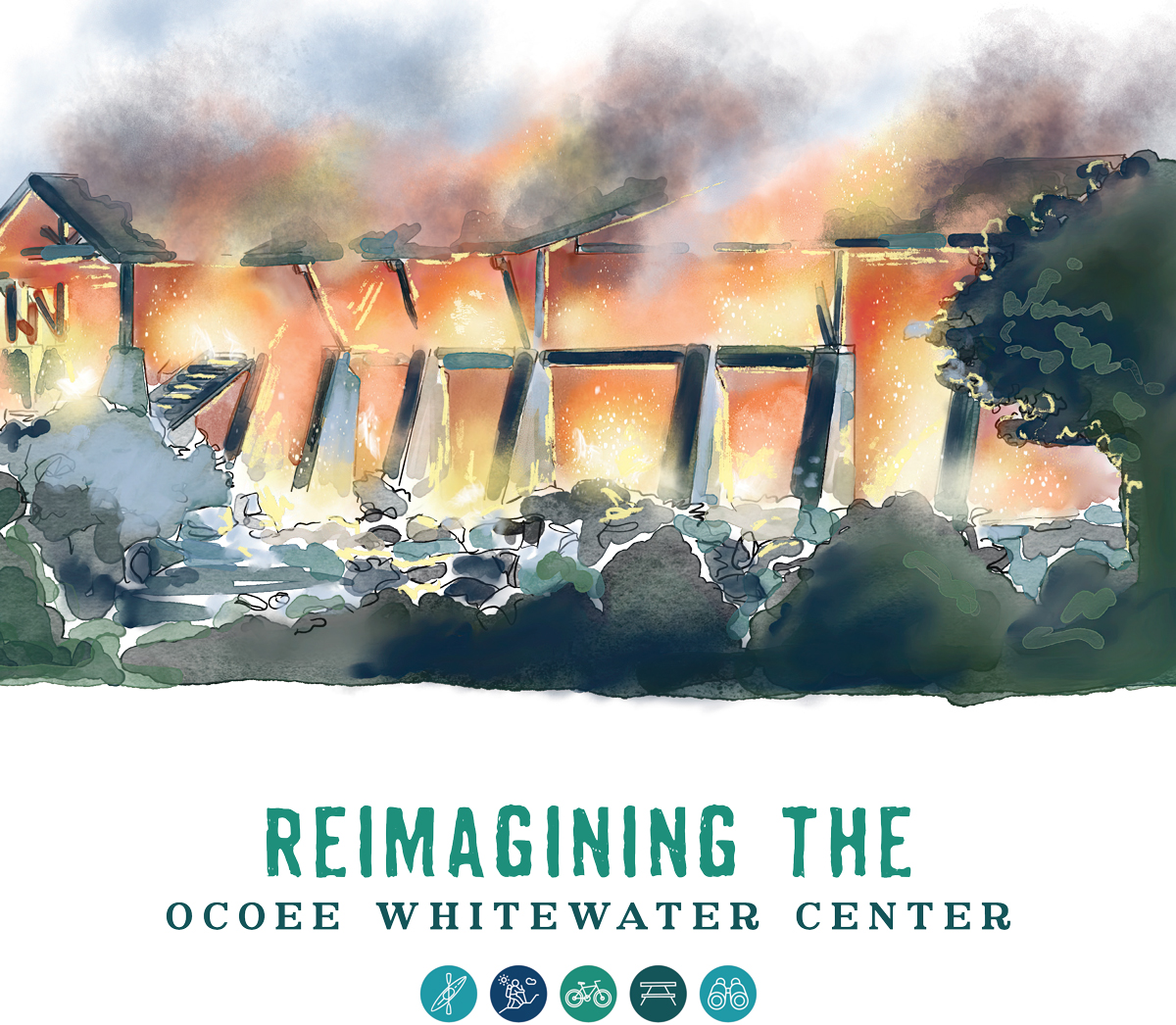
Reimagining The Ocoee Whitewater Center
The Reimagining The Ocoee Whitewater Center report serves as a blueprint for the U.S. Forest Service and other partners responsible for redesigning and rebuilding the Ocoee Whitewater Center site.
View the Ocoee Whitewater Center Report